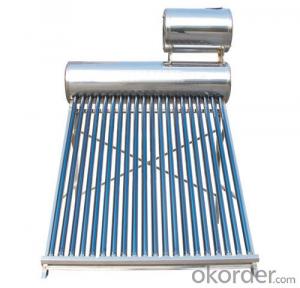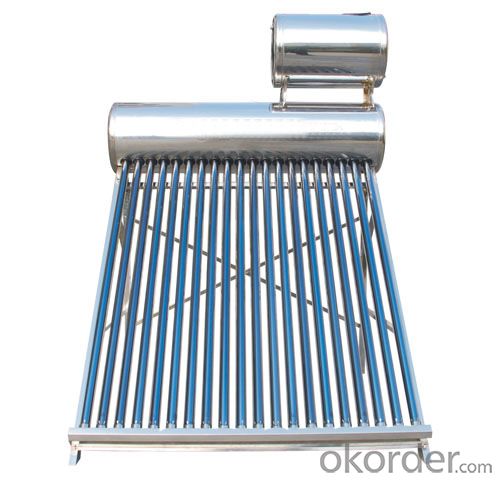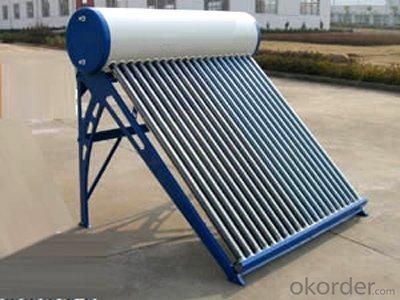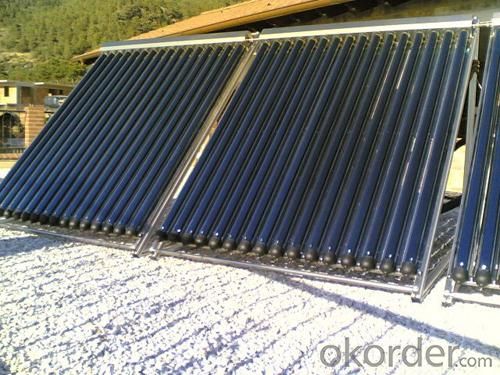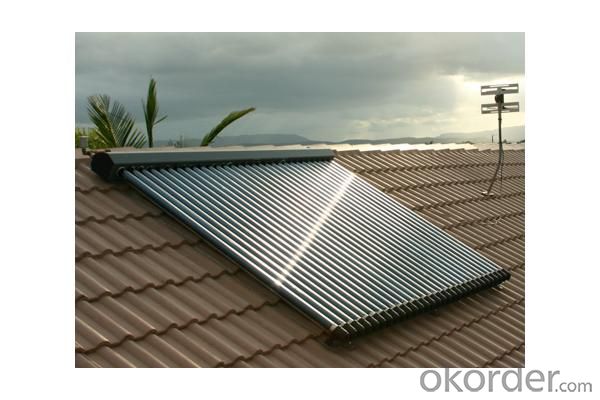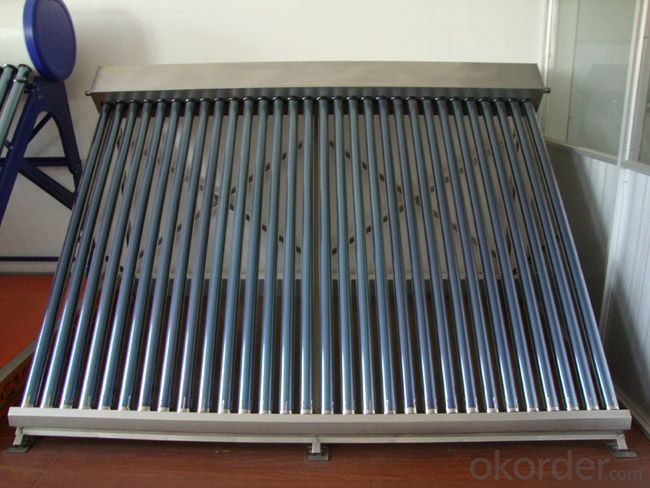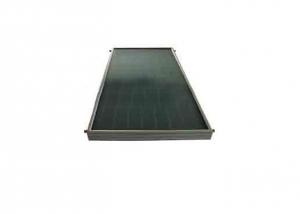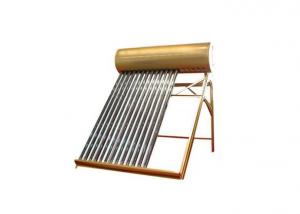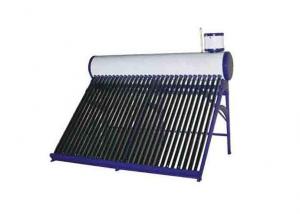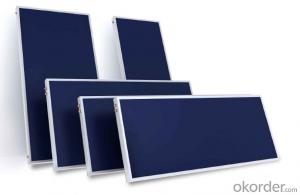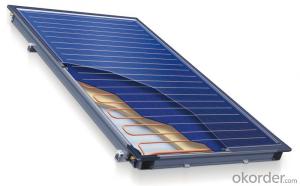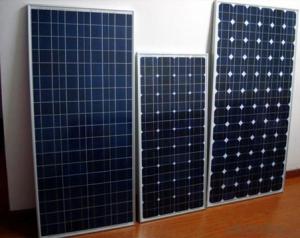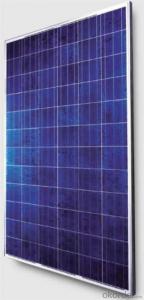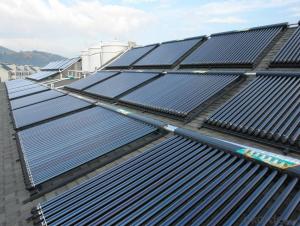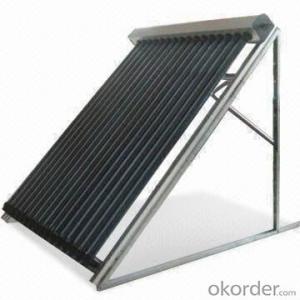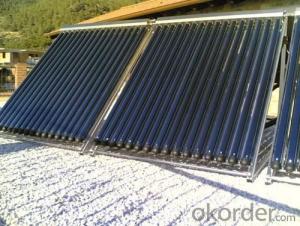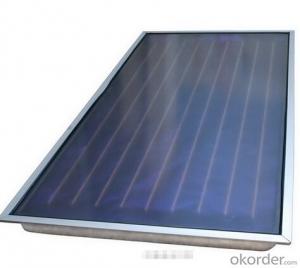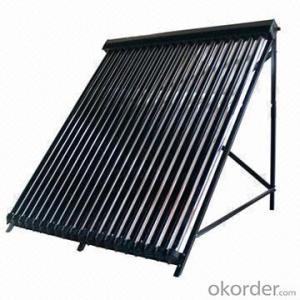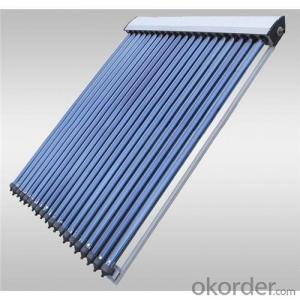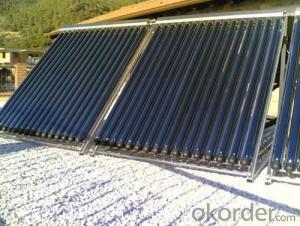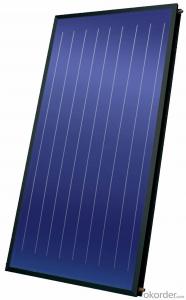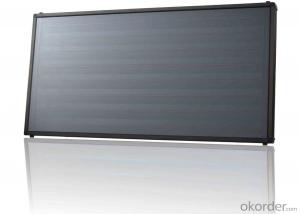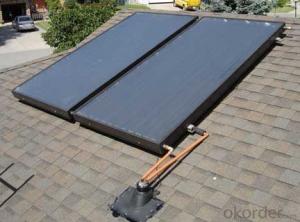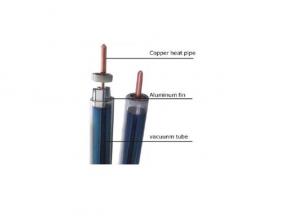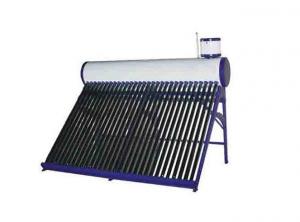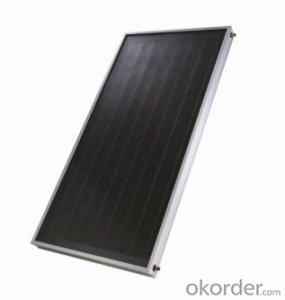Aet Solar Collectors - 18 Tubes High Efficiency Solar Pipes
- Loading Port:
- China main port
- Payment Terms:
- TT OR LC
- Min Order Qty:
- 5 set
- Supply Capability:
- 10000 set/month
OKorder Service Pledge
OKorder Financial Service
You Might Also Like
Specification
manifold (inner) | red copper |
manifold (exterior) | aluminum alloy |
glass tube dimensions | 58mm * 1800mm |
daily efficiency | ≥55% |
heat preservation | 72 hours |
hail resistance | 25mm |
max pressure | 7 bar |
coating of vacuum tube | ALN/AIN-SS/CU |
heat pipe | anti-freezing > -35 degree |
certificate | Solar Keymark, EN12975,SRCC |
Serious Product
Models | L*W*H mm | Vacuum tube | Power output | Efficiency | Header mm | Frame | container loading 20FT/40HQ sets | Gross Weight kg |
SHC-8 | 1917*910*133 | 58*1800*8pcs | 939W | 0.668 | Φ35/1.0 | AL alloy | 185/445 | 27 |
SHC-10 | 1917*1130*133 | 58*1800*10pcs | 1189W | 159/385 | 33 | |||
SHC-12 | 1917*1350*133 | 58*1800*12pcs | 1440W | 149/358 | 40 | |||
SHC-15 | 1917*1680*133 | 58*1800*15pcs | 1815W | 120/290 | 49 | |||
SHC-18 | 1917*2010*133 | 58*1800*18pcs | 2191W | 100/242 | 59 | |||
SHC-20 | 1917*2230*133 | 58*1800*20pcs | 2442W | 87/210 | 66 | |||
SHC-22 | 1917*2450*133 | 58*1800*22pcs | 2692W | 83/202 | 72 | |||
SHC-24 | 1917*2670*133 | 58*1800*24pcs | 2943W | 77/188 | 79 |
Packaging & Delivery
Packaging Details: | Exporting Carton with big foaming protection |
Delivery Detail: | In 10-15 days |
Loading Quantity
Model | Tube | Tube Q.T.Y | Loading Q.T.Y/40HQ |
GSC15 | 58*1800mm | 15pcs | 315sets |
GSC18 | 58*1800mm | 18pcs | 265sets |
GSC20 | 58*1800mm | 20pcs | 248sets |
GSC22 | 58*1800mm | 22pcs | 225sets |
GSC25 | 58*1800mm | 25pcs | 200sets |
GSC30 | 58*1800mm | 30pcs | 168sets |
Details of solar collector:
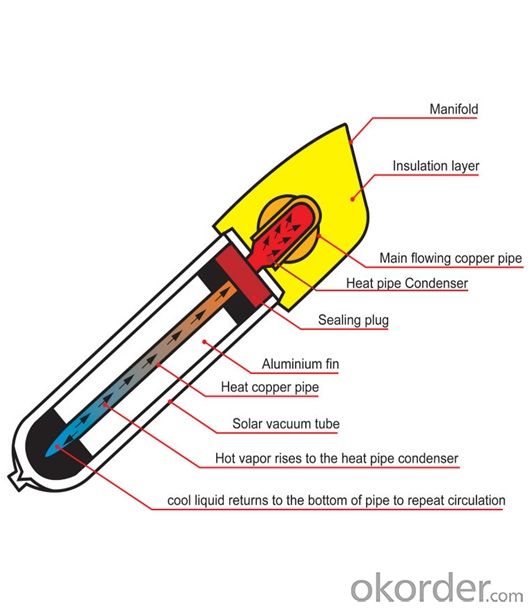
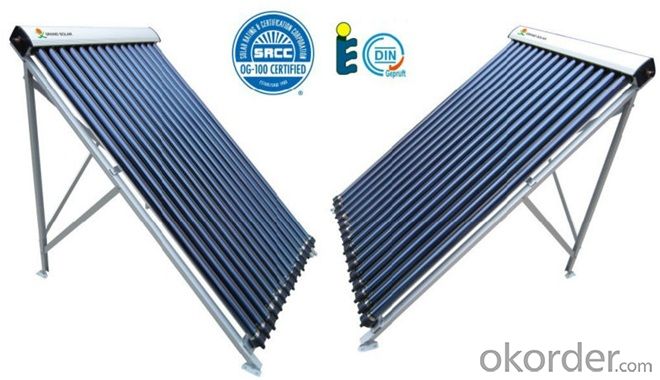
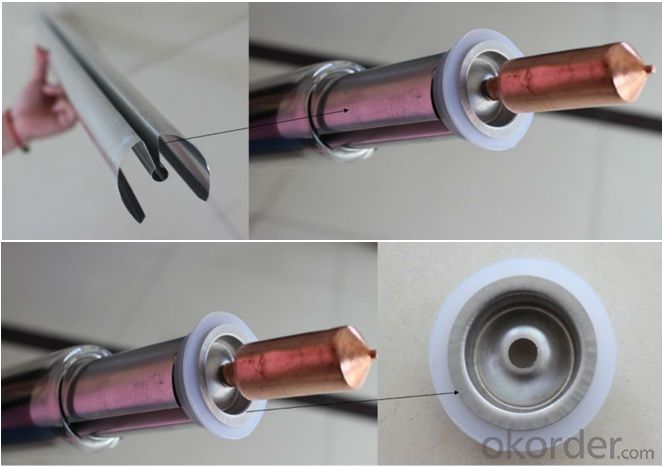
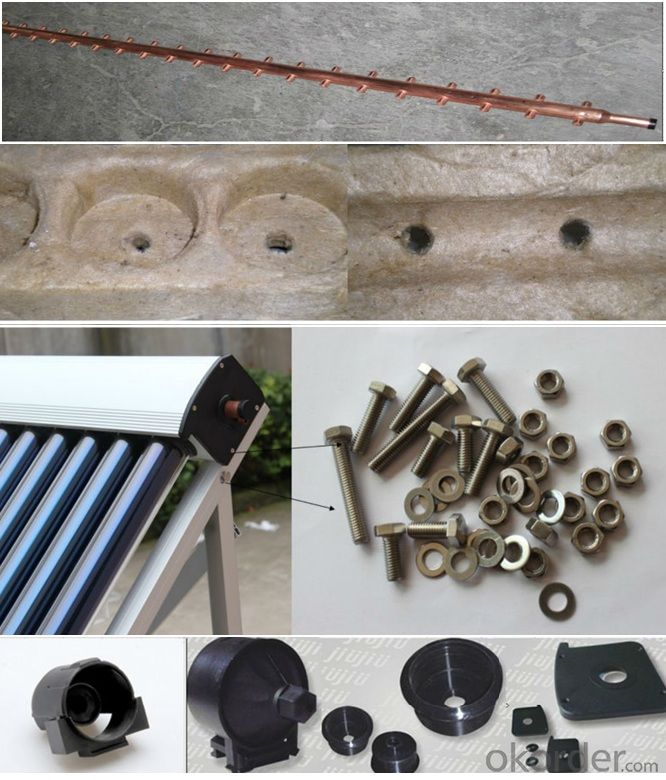
- Q: Flat solar collector how, flat solar collector working principle introduced
- The installation of the system search should ensure safety and functionality while taking into account the combination with the building.
- Q: Can solar collectors be installed vertically?
- Yes, solar collectors can be installed vertically. Vertical solar collectors are designed to capture sunlight from the sides rather than the top, making them suitable for installation on vertical surfaces such as walls or fences. This allows for more flexibility in choosing installation locations and can be particularly useful in urban areas with limited roof space.
- Q: Can solar collectors be used for generating electricity on escalators?
- No, solar collectors cannot be used for generating electricity on escalators. Solar collectors are designed to capture sunlight and convert it into thermal energy, typically used for heating water or air. They are not designed to directly generate electricity. Escalators require a continuous and reliable power source to operate, and solar collectors cannot provide the necessary power output for such a high-demand application. Additionally, escalators are typically located indoors where sunlight may not be readily available, further limiting the feasibility of using solar collectors for this purpose.
- Q: Are solar collectors suitable for all climates?
- Solar collectors are generally suitable for all climates, although their efficiency may vary depending on the amount of sunlight available. In regions with abundant sunlight, such as deserts, solar collectors can be highly effective. However, even in colder or cloudier climates, solar collectors can still provide a significant amount of energy. Additionally, advancements in technology have made solar collectors more adaptable to different weather conditions, making them a viable option in most climates.
- Q: Can solar collectors be used for radiant floor heating?
- Yes, solar collectors can be used for radiant floor heating. Solar collectors, such as solar thermal panels or evacuated tube collectors, can capture solar energy and transfer it to a fluid which can then be used to heat the floors through a radiant system. This method is an efficient and sustainable way to provide warmth to a building's floors using renewable energy sources.
- Q: Can solar collectors be used in areas with limited access to training facilities?
- Yes, solar collectors can be used in areas with limited access to training facilities. Solar collector systems are relatively simple and straightforward to install and operate. With basic technical knowledge, individuals in such areas can be trained to set up and maintain solar collector systems, even without formal access to training facilities. Additionally, there are online resources, manuals, and guides available that can assist in learning and understanding the installation and operation of solar collectors.
- Q: Can solar collectors be used in conjunction with batteries?
- Yes, solar collectors can be used in conjunction with batteries. The excess energy generated by solar collectors can be stored in batteries for later use, allowing for a continuous power supply even when the sun is not shining. This combination is commonly used in off-grid systems or in areas with unreliable grid power, providing a reliable and sustainable energy solution.
- Q: Are there any limitations on the size of a solar collector system?
- Yes, there are limitations on the size of a solar collector system. The size of the system is typically constrained by factors such as available space, budget, and local regulations. Additionally, larger systems may require more maintenance, and the efficiency of the system may decrease as it gets bigger.
- Q: How much does a solar collector cost?
- The cost of a solar collector can vary depending on its size, type, and quality. On average, a residential solar collector can range anywhere from $2,000 to $10,000.
- Q: Can solar collectors be used for heating in areas with high pollution?
- Solar collectors can still be utilized for heating purposes in regions with high pollution. While pollution does have some impact on the efficiency of solar panels, they are still capable of producing a significant amount of heat. The primary reliance of solar collectors is on sunlight, and even in heavily polluted areas, there is still sunlight that manages to reach the Earth's surface. However, it should be noted that the level of pollution does influence the overall efficiency and effectiveness of the solar collectors. In areas with severe pollution, the amount of sunlight that reaches the panels may be diminished, resulting in a decrease in the heat produced. Furthermore, pollution can cause the panels to accumulate dust and dirt, which further hampers their efficiency. Therefore, regular cleaning and maintenance of the solar collectors are imperative to ensure optimal performance, particularly in areas with high pollution levels.
Send your message to us
Aet Solar Collectors - 18 Tubes High Efficiency Solar Pipes
- Loading Port:
- China main port
- Payment Terms:
- TT OR LC
- Min Order Qty:
- 5 set
- Supply Capability:
- 10000 set/month
OKorder Service Pledge
OKorder Financial Service
Similar products
Hot products
Hot Searches
